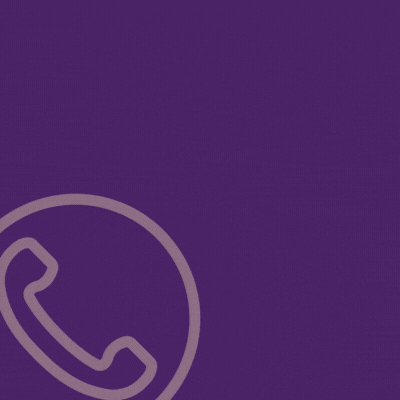FAQ: The Halachos of Singing
A collection of halachic Q&As regarding singing. Collected from Halach2Go and AskTheRav.com, by Horav Yosef Yeshaya Braun, Mara D’asra and member of the Crown Heights Beis Din • Full Article
Q. May One Clap Hands on Shabbos?
A. The halacha in Shulchan Aruch is that one may not dance or clap hands to a tune on Shabbos or Yom Tov. However, the common custom, particularly among Chasidim, is to be very lenient in this matter, since many poskim say that it is acceptable nowadays. They explain that the reason for the prohibition in the first place was that it might lead people to violate Shabbos or Yom Tov by repairing a malfunctioning musical instrument, but since nowadays most people are not capable of repairing musical instruments, the decree is no longer relevant.
Even though not all poskim agree with this opinion, Chasidim rely on this leniency as well as other leniencies in this matter. Another reason discussed by poskim is that when the dancing and clapping is a simcha shel mitzva, rejoicing associated with a mitzva, then it is similar to Simchas Torah when clapping and dancing is permitted in celebration of the Torah. Since Chassidim become very inspired when they daven, and in their fervor get carried away, it is considered simcha shel mitzva when they clap and dance, just as on Simchas Torah.
The Rebbe says that although dancing and clapping hands on Shabbos and Yom Tov requires unique halachic justification, as discussed above, it has become prevalent in our time when we are getting closer and closer to Moshiach’s arrival. The esoteric rationale for this is that we are drawing closer to the era when “My servant Dovid will rule over them,” over the entire Jewish people, “an eternal ruler”. Accordingly, we emulate “My servant David, who was ‘joyously singing songs of praise and cavorting before Hashem.’ This additional joy will be a catalyst for hastening the Geula Halacha2Go #161
Q. Should one refrain from drumming or banging on a table on Shabbos to a niggun?
A. In Shulchan Aruch it says that one may not drum, clap, or dance on Shabbos in a musical context. (It is actually a Mishna in Meseches Beitza 5:2). Part of the reason that we have the custom to be lenient with clapping or dancing while singing etc. is because the clapping is a part of simcha shel mitzva (as mentioned in the Magen Avraham – see previous Q&A).
The same heter exists in theory with drumming or banging on the table to the tune of a niggun. However, this should only be done out of true simcha which assists Avodas Hashem, and not to enjoy one’s drumming skills or similar reasons.
Therefore, many discourage drumming with a vessel (instead of using the hand) or synchronized drumming with the hand to the beat of the niggun, as often these are done more as a musical enhancement rather than as an expression of true simcha shel mitzva.
Q. Is it permissible to clap on Shabbos as applause after a speech?
A. Applause which has no rhythm is permissible, as it is not derech shir – in a musical fashion.*
Is Singing in Davening a Hefsek?
Q. There is a universal niggun in the nusach of Maariv of Yomim Noraim. It is often sung in middle of the bracha between Boruch Ato Hashem and the end of the bracha. Is this a problem of hefsek for the Chazan?
A. Singing during davening, or even in middle of a bracha, is not a hefsek, as long as it is wordless, relevant and not overly lengthy. Indeed, this is the custom in Jewish communities when reciting Birchas Kohanim—and poskim say that the niggun is part of their bracha.
According to many poskim, one may even sing when reciting Hashem’s name. Chabad custom is not to sing when saying Hashem’s name at Birchas Kohanim, but not due to hefsek. #1132*
Niggunim In a Place Torah can’t be said
Q. May one sing niggunim in a place Torah cannot be said (such as a shower)? Or a song with words of Torah? Or a song of other words but to tune of a niggun?
A. Singing niggunim in the bathroom or shower – although halachically permitted, is not appropriate, especially if composed by one of the Rebbeim.
A song with other words but to tune of a niggun – as above.
A song with words of Torah – not allowed.Since even thinking words of Torah is forbidden – if the niggun usually has words of Torah, Tehillim and the like, it may not be sung even without the words because one may come to think the words in one’s mind. #12229
Voice Lessons
Q. Is it permissible for a man to go to a female voice teacher when she might need to sing the exercises?
A. A man should not take voice lessons from a woman if this can be done through a man. If she will actually be singing, it is forbidden for a man to hear the singing.*
Vocal Exercise on Shabbos
Q. I have nodules on my vocal cords which causes long term hoarseness. Part of the treatment my doctor gave me is to do the straw phonation vocal exercise multiple times daily. The exercise involves singing and making sounds through a straw into a cup of water. Am I allowed to do it on Shabbos?
A. It may be done on Shabbos, [as there is no sweating involved and no special kli that makes it seem as a medical treatment — See Tzitz Eliezer 6:4] #23295*
Q. Can a group of girls (11-14 years old) sing together in a nursing home?
A. If men will be present it is forbidden. From the age of 11, a girl may certainly not sing in front of men (or boys over 9). Some Rabbonim are of the opinion that even girls from the age of 6 should avoid singing in front of men. Some are careful even from age 3.
While there is a minority view that makes a distinction between a single girl singing and a group of girls singing, the general consensus in halacha is that no difference exists if it’s one girl or a group singing in front of a man. #6471*
*References are available for this Halacha on the websites: www.Halacha2Go.com and www.AskTheRav.com.
Please note that these halachos apply in general situations, if you are unsure whether the halacha applies to your particular situation, please consult a Rav
116
Join ChabadInfo's News Roundup and alerts for the HOTTEST Chabad news and updates!











































